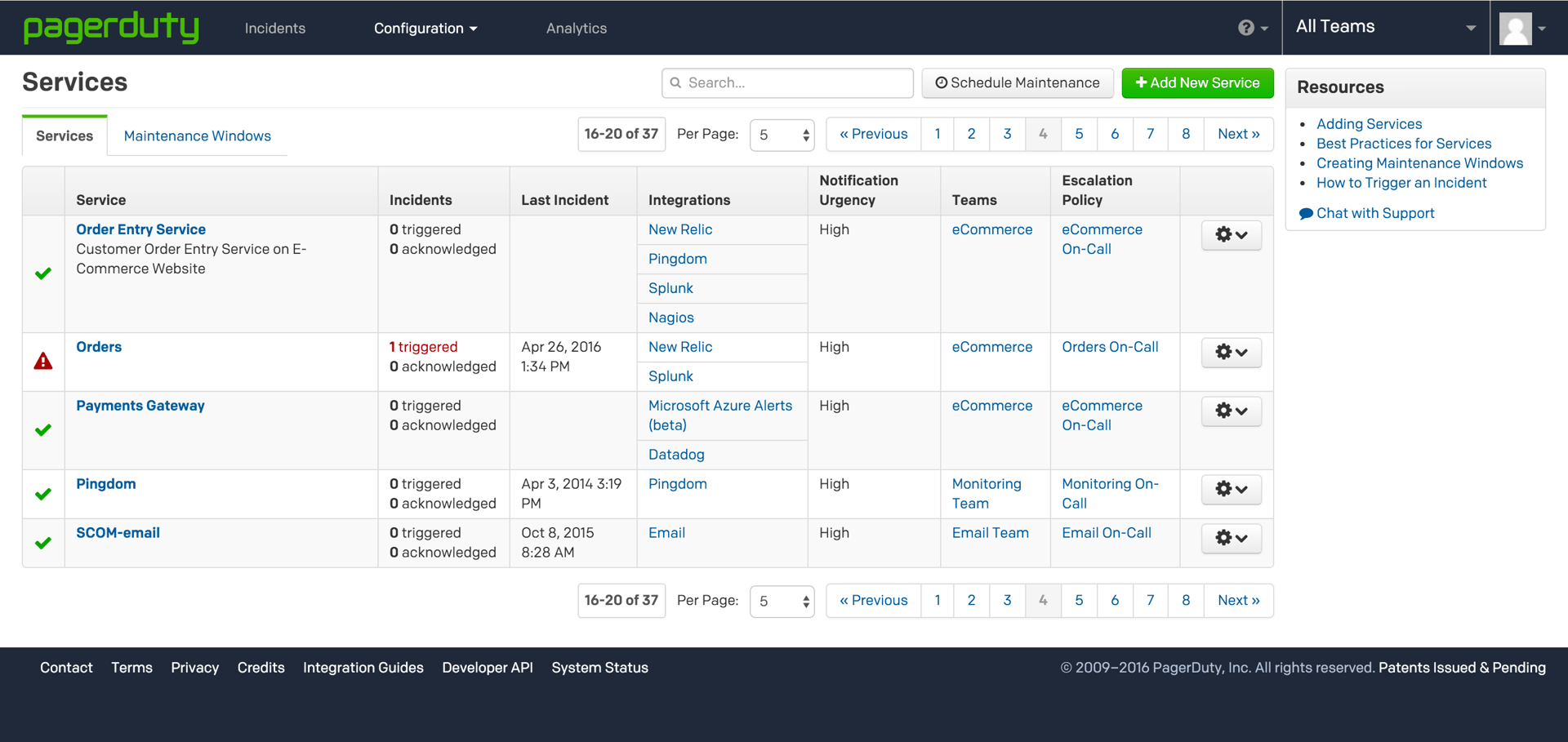Announcing the Availability of PagerDuty Services Group
Evolving the “Service”
Since the start of our platform, PagerDuty has had a core concept called a “service.” It was the origination point for a myriad of integrations, defined incident behavior, and identified who to notify by the attached escalation policy, schedules, and webhooks. But what did this “service” represent? What was its purpose? When there were incidents, did it convey any meaningful information about what was broken or how customers might be impacted?
PagerDuty has always had a goal of representing your IT systems/components as a service, because your systems:
- Have valuable context about where you should be focusing in a firefight, and they are part of how you communicate failures internally, especially if you’re dependent on another team’s service.
- Have explicit owners and that relationship should be maintained in a central location.
- Logically contribute to the business-level service you are providing to customers.
Connecting “IT” all together
Today, we are announcing a new feature for all our customers, the PagerDuty Services Group. With this new feature, you can easily group the multiple integrations you have in PagerDuty that monitor the various layers of your service.
Are you using multiple tools to monitor different aspects of your system? Maybe you use New Relic for application-level performance of your system, Splunk for log aggregation related to the system’s database and web server, and Pingdom to monitor the external accessibility of the system. Wouldn’t it be great if you could represent that system in PagerDuty and connect all three integrations?
With the PagerDuty Services Group you can:
- Represent a service in PagerDuty, as it exists in your environment.
- Add multiple integrations to a single Service where integrations such as APM, Log Analytics, Networking all exist together.
- Seamlessly move existing integrations from one Services Group to another without downtime or reconfiguration.
- Easily consolidate integrations under one or more Services Group.
If you’re a PagerDuty customer today, I strongly encourage you to consider a service-centric approach to organize your account using Services Groups.
This is just the first in a series of investments in the PagerDuty “service” concept. We believe it is a foundational part of organizing your on-call experience and orchestrating an effective incident response. Got any feedback or barriers to representing your system’s/components in PagerDuty? Let us know at support@pagerduty.com.
